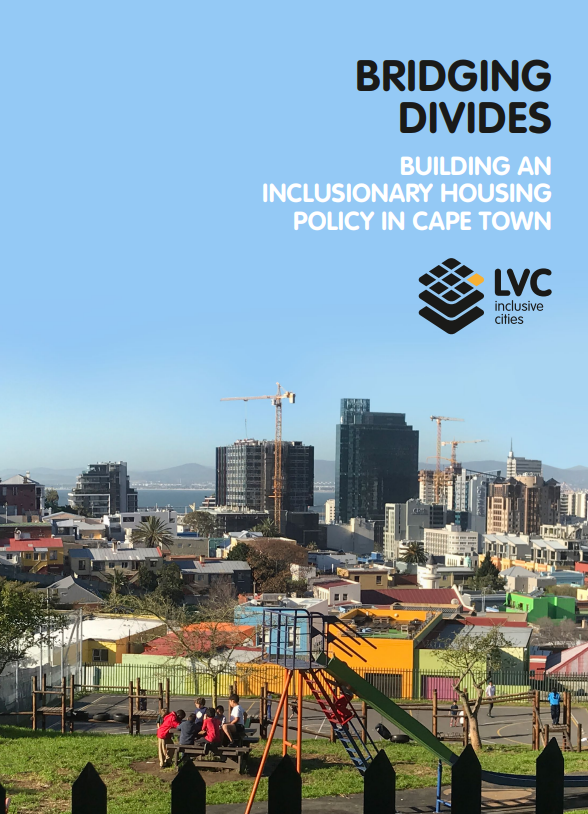Bridging Divides: Building an Inclusionary Housing Policy in Cape Town

01 March 2022
Development Action Group, Lincoln Institute of Land Policy, National Treasury
English
Report
Africa
This publication titled Bridging Divides: Building an Inclusionary Housing Policy in Cape Town (PDF, 7.08 MB), offers an insightful glimpse into the inner workings of the Municipal Planning Tribunal (MPT) in Cape Town, South Africa, and its involvement in high-stakes disputes surrounding urban development. Through the lens of the National Spatial Planning and Land Use Management (SPLUMA) Act 16 of 2013, the article highlights the pivotal role of the MPT in upholding the principles of spatial justice within the city's planning and decision-making processes. As the legislation assigns planning authority to municipalities, it also mandates the incorporation of spatial justice principles, thus underscoring the critical link between planning practises and spatial transformation. The piece emphasises the significant expectations and challenges placed on local governments in addressing issues of equality and advancing spatial transformation, providing insights from experts such as Willard Matiashe, a researcher at the Development Action Group (DAG), a Cape Town-based urban land rights NGO.
Furthermore, the publication delves into the transformative impact of SPLUMA, viewed as a crucial milestone in South Africa's ongoing efforts to address the enduring effects of spatial apartheid. It delves into the complexities of translating the principles outlined in SPLUMA into practical programmes and sustainable practises, while also addressing the financial aspects involved in such endeavours. The focus remains on the initiatives undertaken by the City of Cape Town, offering a case study that sheds light on the challenges and strategies involved in implementing spatial justice principles within urban planning and development.
Abstract based directly on source.


Comments